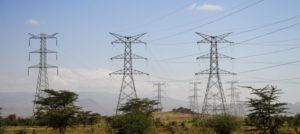
Share
By Kevin Keitany
The rapid increase in enrolment in public primary schools has resulted in a strain on sanitation facilities within most Kajiado County learning institutions.
The supply of drinking water to pupils is of questionable quality and has been identified as a possible causal factor to escalating incidences of infections among children. These factors combined have resulted in inconsistent school attendance, low school completion rate, and high dropout rate.
In some schools, pupils draw water from nearby streams, which is of questionable quality and may directly affect the student’s health, school attendance, and retention.
It has been established that sanitation facilities and school infrastructure contributed to school dropout among pupils in public primary schools in Kajiado North Sub-County. Notably, the school dropout rate in Kajiado as of 2017 was 6.8%, higher than the national average of 5.7%. Elsewhere, the enrollment rate in Kenya increased from 76.49 % in 2008 to 81.83 % in 2019, growing at an average annual rate of 1.1%.
Therefore, the county government takes cognizance of pre-primary education as a crucial foundation for basic education, character formation, and lifelong learning. The constitution of Kenya 2010, Article 43, guarantees every person has the right to education, while Article 53 provides free and compulsory primary education to all children, essential nutrition, shelter, and health care.
Pre-primary education provides opportunities for children to enhance their cognitive, social and spiritual, emotional, and physical development.
The county’s focus on improving education is highlighted by the projected budgetary allocation toward the sector. According to the CDIP report, between 2018 and 2022 the county is estimated to allocate almost Sh 400 million towards the sector.
Through the Department of Education and Vocational Training, the county government has commenced an initiative for equipping schools with tents and tanks from the Sh11 million donated by the county government emergency fund under the last financial year. The initiative will see one primary school from 25 Wards benefit from a water tank.
Governor Joseph Lenku has assured that the county is working to ensure students can get education without interference from historical inhibitors. In this line, the county has allocated Sh150 million towards the bursary kitty.
A few months ago, the community aired the plight of pupils at Embulbul primary school, where over 3,000 pupils lacked access to water, and at Isinya township primary school in Kajiado county.
Weeks later, the county government has stepped in to salvage the future of the young learners by allocating five hectares of land and Sh3 million for the school’s relocation. Sh1.8 billion has also been allocated to improve public schools’ infrastructure, a critical 100% transition policy component.
These funds are meant to support various public schools across the country to ensure that the amenities in these schools are improved. County education executive Samuel Seki says the government is moving with speed to ensure pupils continue learning without interruption.
Image: A school in Kajiado county. Source: Kajiado.go.ke
This story was produced by Radio Domus in partnership with Code for Africa, Kenya Community Media Network (KCOMNET) and the Catholic Media Council with support from the German Cooperation as a part of the Our County Our Responsibility project.


